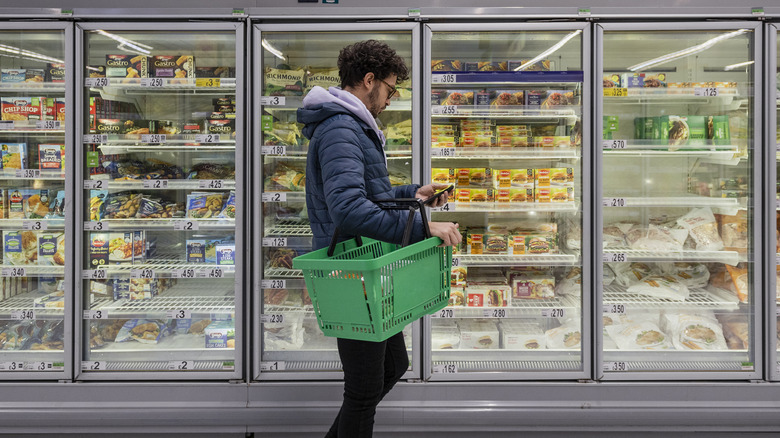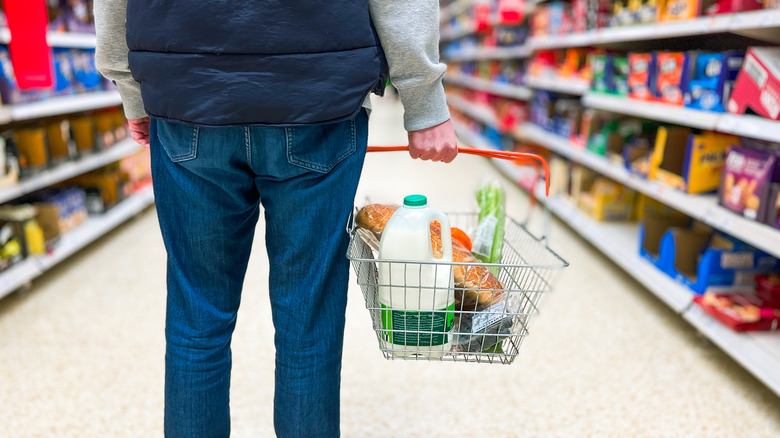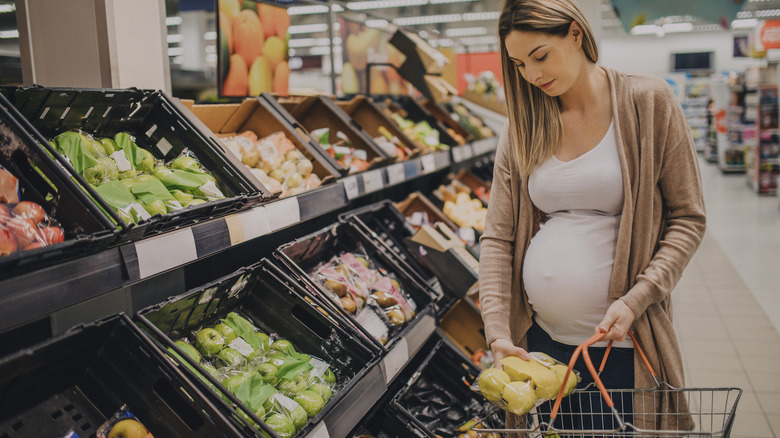The UK Government Wants To Enact Price Caps On Food To Curb Inflation
It's not exactly breaking news that the cost of living has been getting unsustainable and, frankly, unlivable worldwide. Currently, inflation rates sit at 7.2% in Germany, 8.2% in Italy, 5.9% in France, and a staggering 43.68% in Turkey. As of April 2023, U.S. inflation is 4.9%, a slow cool from the record high 9.1% consumers saw in June 2022. Still, the market has a long way to go to return to its pre-recession figures. Just three years ago, in May 2020, the U.S. inflation rate was 0.1.% (Woof.)
Now, finally, it looks like British consumers may be able to take a sigh of relief. According to U.K. news outlet The Telegraph, Prime Minister Rishi Sunak is discussing the possibility of enacting a price cap on food to curb inflation. The cap would affect food staples like bread and milk. Sunak and his team have already begun discussions with U.K. supermarkets to arrange a deal. England was struck especially hard by the gas price increase incited by the Russia-Ukraine conflict last year. As a Treasury source told the outlet, "Food inflation is much more resilient and difficult to get rid of than we anticipated." In April 2023, core inflation in the U.K. hit 6.8%, a 31-year high. As of May 24, it further increased to 8.7%. Actual inflation levels have consistently matched or exceeded the Bank of England's predictions since at least January. Sunak's latest endeavor could help bring those stubborn figures down at long last.
Following France's lead
The Prime Minister's approach would follow a model implemented by the French government in March. In the deal created by Finance Minister Bruno Le Maire, major French supermarkets independently evaluated their sales and identified essential food items that they agreed to reduce in price as much as possible — or, at least, to stop increasing. In the same way, all price caps by U.K. supermarkets must also be voluntary per the prospective plan.
In France's market, the price cap worked, bringing inflation down from 14.5% in February to 5.7% by April. Still, it wasn't without a cost. The price halt from April to June cost French retailers estimated hundreds of millions of euros. Still, the government and market collectively decided that immediate action had to be taken.
Now, in the U.K., consumers are struggling under the weight, as are many smaller retailers who are facing higher operating costs of their own and garnering dwindling revenue despite selling products at higher price points. If implemented, the nationwide price cap could hurt non-chain grocery retailers across England. But, while the well-being of the market is of course important, especially when it comes to supporting independent businesses, the current reality is that many U.K. households can't afford to eat. In this case, perspective counts.
What this could mean for other countries
Looking forward, France and Britain's price cap policies could reasonably influence economic policy in other leading nations. Some economists maintain that governmental interference in food and gas prices can distort the market and make supply chain problems even worse as demand increases and supply remains constant, or depletes. Other experts insist that it's a risk worth taking in light of the ongoing global economic crisis and as a way to secure time to deal with congestion within the supply chain.
According to the U.S. Bureau of Labor Statistics, food and energy costs in America increased by 0.4% last month alone. The preservation of the "free market" should not be the priority here, argue many economists — it should be helping the nearly 25% of Americans who regularly face food insecurity, per a recent report by CBS News. U.K. Chancellor Jeremy Hunt would seem to agree. Last week, Hunt told Sky News that he would be okay with Britain falling into a recession if it meant the inflation crisis would finally halt: "[I]n the end, inflation is a source of instability. And if we want to have prosperity, to grow the economy, to reduce the risk of recession, we have to support the Bank of England in the difficult decisions that they take."


